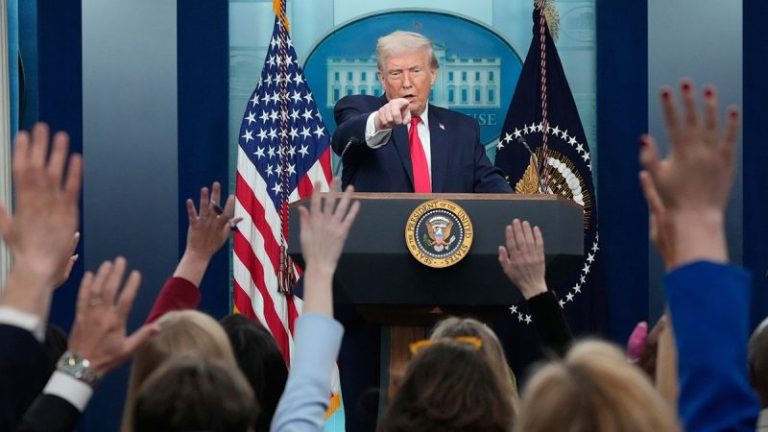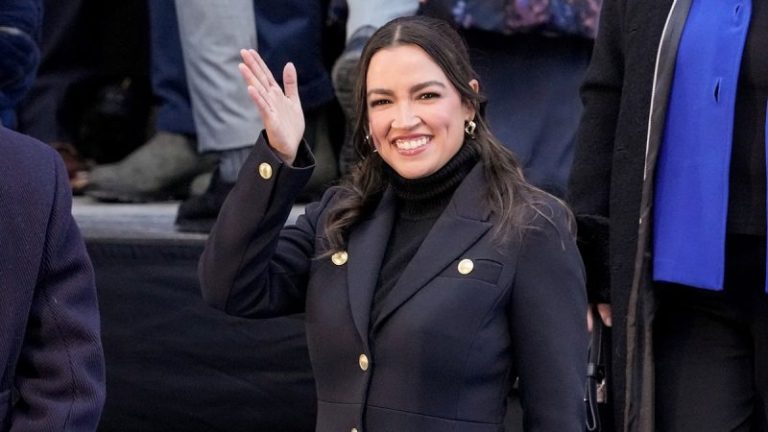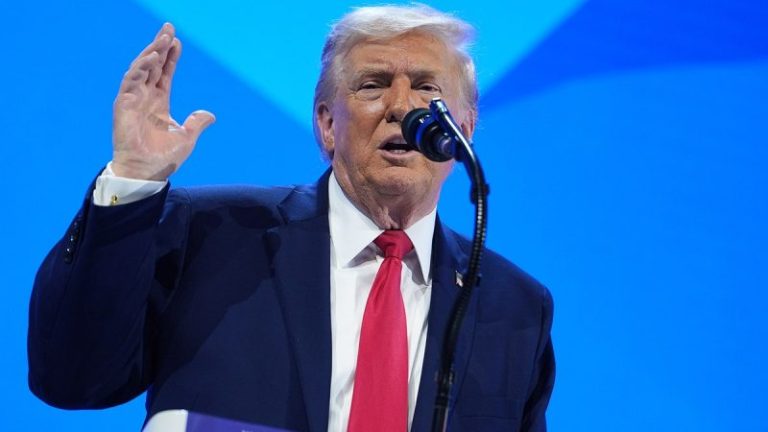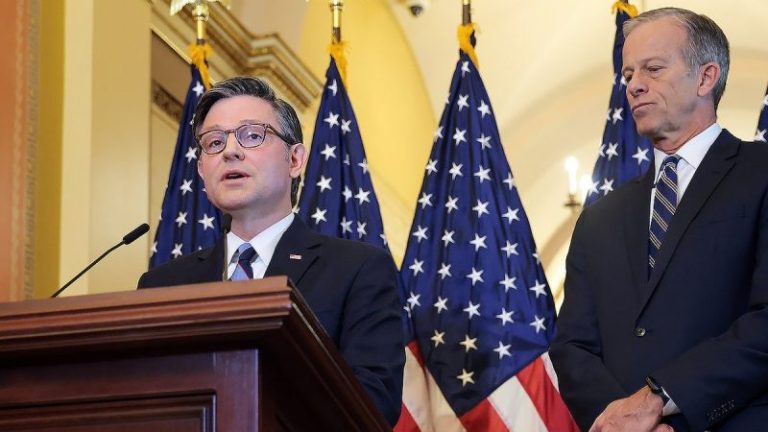2026: Opportunities and Objectives
- Infill drilling to define higher-grade zones and improve/derisk the mineral resource
- Additional metallurgical testing to target >90% recovery and assess cost efficiency
- Expand on the newly discovered Tamarack Zone and adjacent higher-grade Cleary Hil resultsl
- Updated Mineral Resource Estimate
Objective: continue to demonstrate that Golden Summit is a highly attractive, extremely rare, generational project with phased development potential.
Freegold Ventures Limited (‘Freegold’ or ‘the Company’) (TSX: FVL,OTC:FGOVF) (OTCQX: FGOVF) is pleased to provide an update on its 2026 plans for Golden Summit and a review of its 2025 activities.
In July 2025, Freegold published its updated mineral resource estimate for Golden Summit, which showed a significant increase in ounces, making it one of the largest undeveloped gold resources in North America.
- Indicated Primary Mineral Resource: 17.2 Moz at 1.24 g/t Au, a 42% increase in ounces and 15% grade increase from the September 2024 resource estimate.
- Inferred Primary Mineral Resource: 11.9 Moz at 1.04 g/t Au, an 11 % increase in ounces, at the same grade.
- Cut-off grades remained unchanged at 0.50 g/t Au. (PR July 24, 2025)
In 2025, Freegold completed over 39,000 metres of drilling. The ongoing infill drill program is continuing to improve the resource block model, and results are aligning well with current geological interpretations, strengthening confidence in the resource model.
In January 2026, Freegold successfully completed a $50 million equity raise, with participation from over 20 institutions and the continued support of Eric Sprott.
With a strong treasury, Freegold is well-positioned to advance the Golden Summit project in 2026 and will focus on several key initiatives:
- Infill drilling to define higher-grade corridors and further derisk the mineral resource.
- Expanded metallurgical testing to optimize gold recovery and enhance project economics.
- Evaluation of multiple development strategies, including staged development, to maximize project viability and minimize initial capital expenditures.
- Completion of a Pre-Feasibility Study (PFS) by Early 2027
Upcoming Drilling Program & New Tamarack Discovery
Freegold continues to achieve exploration success in defining new zones of gold mineralization. The rapid increase in the gold price by over $2,000 since the July 2025 resource update was completed is further benefiting Golden Summit’s very large lower-grade halo in the 0.3-0.5 gpT range, offering our investors considerable optionality. Given the substantial size of the existing resource at Golden Summit, current drilling efforts are focused on areas with the highest potential to serve as an initial starter pit. By systematically identifying higher-grade corridors, focusing on reducing the strip ratio, and determining the optimal cut-off grade, Freegold is continuing to ensure the project’s value is maximized. These efforts are designed to deliver a robust, de-risked mineral resource estimate that will serve as a solid foundation for the upcoming Pre-Feasibility Study (PFS).
Drilling will resume in February with a 50,000-metre program targeting the central Dolphin/Cleary/WOW Zones and the newly discovered Tamarack Zone. The Tamarack Zone extends the deposit’s footprint to the east and, likely, to the southeast, and represents a significant opportunity to materially increase the overall project resource. The Cleary Hill Zone, located 400m west of Tamarack, is continuing to demonstrate potential for wider mineralized zones at depth and had some excellent drill intersections in 2025, including one reported on January 15th. Additional drilling in 2026 will target the untested gap, which is considered to have substantial infill potential.
Metallurgical Studies
Freegold is excited about the advanced metallurgical testwork underway, which will help identify the optimal, lowest-risk treatment methods. Metallurgy has been an area of uncertainty for investors. Our 2025 test work provided several important results: recoveries over 90% were achieved with four oxidation processes: BIOX®, POX, and the Albion Process and the GlassLock Process treating a flotation concentrate of approximately 4% mass. The flotation tailings were found to be non-acid-generating, as the material had an AP (acid potential) below the detection limit, as determined by standard ABA (Acid-Base Accounting) procedures.
A simple, low-cost gravity step recovered 40-50% of the gold, bolstering recovery in all the flowsheets tested. Recent results from the GlassLock Process demonstrate an enhanced gold grade in concentrate, with no measurable gold losses during processing, resulting in the production of a saleable, direct-to-smelter concentrate that avoids the use of cyanide while significantly reducing arsenic content. The concentrate would be highly attractive to numerous end users.(Source: PR, December 16th, 2025). Ongoing trade-off studies will determine whether the additional processing and capital investment required for further treatment are warranted, or whether a simpler gravity- and CIL-based flowsheet is more cost-effective despite lower recovery rates.
The expanded metallurgical program, initiated in the second quarter of 2025, sourced materials from various areas and depths to ensure a comprehensive assessment of the deposit’s characteristics. A pilot plant processed over 1.5 tonnes of composite material from expanded drill core sampling, resulting in the production of gravity and cleaner flotation concentrates. These concentrates will support ongoing test work throughout 2026 and facilitate subsequent detailed engineering studies. Furthermore, several additional metallurgical test holes with larger-diameter PQ drilling are planned to augment the current work.
A Unique Scenario – Golden Summit’s Capacity to be its own District.
There is a geological consistency between Golden Summit’s large and growing resource and its history. Since the Alaskan gold rush, over 6.75 million ounces of placer gold have been recovered from streams draining the project area, and a further 500,000 ounces of lode gold have been produced. The current mineral resource lies within the western portion of the 13-kilometre x 6km property and, within a comparatively small 2 km by 1.5 km footprint. Significant exploration upside remains both immediately east and west of the defined resource, offering outstanding opportunities for further discoveries and resource growth. The discovery of the Tamarack Zone, announced earlier this month, was yet another reminder of this potential.
Further to the east, geochemical and geophysical surveys have identified several target areas, including significant gold-in-soil anomalies, key indicators of mineralization, and closely linked to historically productive regions. Our greatly enhanced understanding of the mineralization controls has allowed Freegold to maintain an enviably low finding cost under $5/oz. These anomalies present excellent opportunities for future discoveries – not only those that will add ounces, but also those that could boost early project economics. One drill rig will be dedicated to this eastern area over the summer, further supporting efforts to enhance shareholder and project value.
Path to Pre-Feasibility Early 2027
With drilling planned to resume in February 2026, the year is expected to be another highly active one, with the continuation of infill/condemnation and exploration drilling in conjunction with ongoing environmental baseline work to provide a strong foundation for future permitting.
Freegold has maintained a consistent commitment to environmental responsibility by conducting baseline studies over the past several years, focusing on groundwater and wetlands delineation, and by ongoing reclamation of drill pads and project roads post-use to minimize environmental impact.
In 2025, Freegold broadened its scope to include field assessments of cultural resources, archaeology, and paleontology, further demonstrating its commitment to responsible project development. As part of its 2025 environmental initiatives, Freegold installed vibrating wire piezometers (VWP’s) to enable ongoing groundwater monitoring, which is vital for future dewatering strategies. Additionally, mammal habitat assessments were initiated during the winter, with plans to expand them in upcoming seasons to promote a comprehensive wildlife management approach. Efforts are also underway to electrify the Golden Summit camp as part of Freegold’s strategy to reduce diesel consumption, with completion anticipated in early spring. As part of its pre-feasibility study (PFS), Freegold has engaged a power consultant to evaluate the local power infrastructure and investigate alternative energy sources to enhance long-term sustainability.
As Golden Summit continues to evolve, its exceptional optionality becomes more evident: its location, resource size, and, with the success of the ongoing metallurgical test work, the potential for multiple development paths, which will be evaluated to ensure the most optimal outcome for the pre-feasibility study (PFS).
2025 Drill Results
Drilling was completed in mid-December, with 63 holes drilled. Analytical work, including cutting and sampling of the remaining drill holes, is ongoing and will provide news flow in the early months of 2026 while our 2026 drill program ramps up. Further results will be reported once they have been received and validated.
Upcoming Conference Attendance: January – March 2026
AMEBC Round Up, Vancouver, BC, January 26th – 29th, 2025 (Booth 127 January 26th – 27th, 2026)
BMO 35th Global Metals, Mining & Critical Minerals Conference, Hollywood Florida February 22nd, -26th, 2026
Prospectors and Developers. (PDAC), Toronto, Ontario – March 1st – 4th, 2026 – Booth 2621 (Main Exhibit Hall)
About Golden Summit
Since 2020, the Golden Summit Project has become one of North America’s largest undeveloped gold resources. The substantial increase in resource ounces and grade is attributed to targeted drilling campaigns between 2020 and 2024 (totalling over 130,000 metres), ongoing improvements to geological models, and enhanced understanding of mineralisation controls. Positive metallurgical test results have also propelled the project forward. Continued drilling has delineated higher-grade zones and converted previously considered waste areas into potentially economically viable mineralised zones.
Recovery rates exceeding 90% have been achieved using sulphide-oxidising techniques such as BIOX®, POX, and the Albion Process. Recent testwork also included the GlassLock Process, which demonstrated that the gold grade of the concentrate can be increased without measurable gold loss, producing a direct-to-smelter saleable concentrate with significantly reduced arsenic content.
As of July 2025, the Golden Summit resource includes an Indicated Primary Mineral Resource of 17.2 million ounces at 1.24 g/t Au and an Inferred Primary Mineral Resource of 11.9 million ounces at 1.04 g/t Au, calculated using a 0.5 g/t cut-off grade and a gold price of $2,490. Cutting, sampling, and analytical work are ongoing, with drilling expected to resume in February. Results from the 2025/2026 drilling campaign will provide the basis for an updated mineral resource estimate, which will support the upcoming Pre-Feasibility Study (PFS).
Qualified Person Statement
The Qualified Person for this release is Alvin Jackson, P.Geo., Vice President of Exploration and Development for Freegold, who has approved the scientific and technical disclosure in this news release.
About Freegold Ventures Limited
Freegold is a TSX-listed company focused on exploration in Alaska.
Cautionary Statement Regarding Forward-Looking Information
This press release contains statements that constitute ‘forward-looking information’ (collectively, ‘forward-looking statements‘) within the meaning of the applicable Canadian securities legislation. All statements, other than statements of historical fact, are forward-looking statements and are based on expectations, estimates and projections as at the date of this press release. Any statement that discusses predictions, expectations, beliefs, plans, projections, objectives, assumptions, future events or performance (often but not always using phrases such as ‘expects’, or ‘does not expect’, ‘is expected’, ‘anticipates’ or ‘does not anticipate’, ‘plans’, ‘budget’, ‘scheduled’, ‘forecasts’, ‘estimates’, ‘believes’ or ‘intends’ or variations of such words and phrases or stating that certain actions, events or results ‘may’ or ‘could’, ‘would’, ‘might’ or ‘will’ be taken to occur or be achieved) are not statements of historical fact and may be forward-looking statements. Forward-looking statements contained in this press release, include, without limitation, statements regarding advancing the Golden Summit Project and other exploration plans and results of any drill programs, statements regarding the timing for and expected completion of a pre-feasibility study, the results of any environmental initiatives or metallurgical testing and any development, or drilling. In making the forward-looking statements contained in this press release, the Company has made certain assumptions. Although the Company believes that the expectations reflected in forward-looking statements are reasonable, it can give no assurance that the expectations of any forward-looking statements will prove to be correct. Known and unknown risks, uncertainties, and other factors may cause the actual results and future events to differ materially from those expressed or implied by such forward-looking statements. Such factors include, but are not limited to: availability of financing; delay or failure to receive required permits or regulatory approvals; and general business, economic, competitive, political and social uncertainties. Accordingly, readers should not place undue reliance on the forward-looking statements and information contained in this press release. Except as required by law, the Company disclaims any intention and assumes no obligation to update or revise any forward-looking statements to reflect actual results, whether as a result of new information, future events, changes in assumptions, changes in factors affecting such forward-looking statements or otherwise. See Freegold’s Annual Information Form for the year ended December 31, 2024, filed under Freegold’s profile at www.sedarplus.com, for a detailed discussion of the risk factors associated with Freegold’s operations.
SOURCE Freegold Ventures Limited
View original content to download multimedia: http://www.newswire.ca/en/releases/archive/January2026/23/c5061.html










